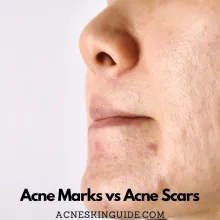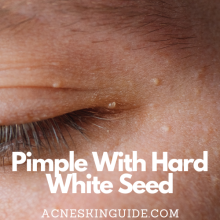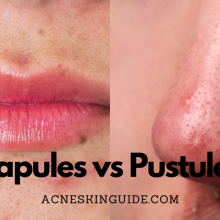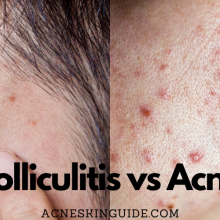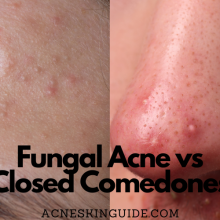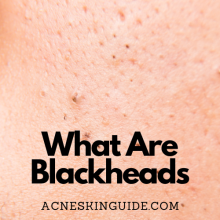Acne in Men | Acne Skin Guide
Acne affects a significant portion of adult men, with estimates of up to 25% suffering from it between ages 20-60. It is more than just a superficial issue, causing profound physical and emotional impacts often overlooked. Key contributors include hormonal changes, genetics, lifestyle factors like diet and stress, and environmental exposures. Forms of acne range from typical whiteheads and blackheads to severe cystic lesions more common in men.
Treatment options span over-the-counter products, prescription medications like antibiotics and Accutane, professional procedures, and lifestyle adjustments. However, treatments have potential downsides like dryness, antibiotic resistance, systemic side effects, and cost barriers. Myths like acne being caused by poor hygiene or foods persist. Ultimately, consistent skincare, emotional support, patience, and guidance from a dermatologist empower men to manage this condition that significantly impacts self-esteem, social aspects, and dating.
#1 Recommended Acne Treatment | #2 Recommended Acne Treatment |
 |  |

Acne – The Not-So-Invisible Problem for Men
When most people think of acne, the image of an awkward teenager struggling with pimples comes to mind. However, the reality is that acne affects a significant number of adult men as well. In fact, studies estimate that up to 25% of men aged 20-60 experience acne at any given time. Far from just a superficial inconvenience, acne in men can have profound physical and emotional impacts that are often overlooked or misunderstood.
The Causes Behind Male Acne
While every case is unique, there are several key factors that contribute to the development of acne in men:
Hormonal Havoc – Increased levels of testosterone during puberty trigger excess sebum production, leading to clogged pores and breakouts. Some men continue to experience hormonal fluctuations well into adulthood, making them prone to persistent acne.
Genetic Gamble – If acne runs in the family, men are more likely to inherit the predisposition for over-active oil glands and clogged pores.
Lifestyle Stressors – Poor diet, lack of sleep, high stress levels, and certain medications can all exacerbate acne by influencing hormone levels and inflammation.
Environmental Exposures – Pollution, humidity, friction from helmets/equipment, and even hair products can clog pores and contribute to breakouts.
Acne Comes in Many Forms
The term “acne” encompasses a range of skin issues, with varying levels of severity:
Acne Vulgaris – The most common type, characterized by whiteheads, blackheads, and inflamed pimples on the face, chest, and back.
Cystic Acne – Deep, painful lesions that can leave permanent scarring if not treated properly. More common in men due to higher testosterone levels.
Acne Mechanica – Caused by friction, heat, and rubbing from sports gear, backpacks, or tight clothing. Often affects the back, neck, and shoulders.
Treating the Man Behind the Acne
Fortunately, there are numerous treatment options available for men looking to get their acne under control:
Over-the-Counter Solutions – Benzoyl peroxide, salicylic acid, and retinoids can help manage mild to moderate acne. However, these topical treatments only target surface symptoms.
Prescription Power – For more severe or persistent cases, dermatologists may prescribe stronger medications like oral antibiotics, topical retinoids, isotretinoin (Accutane), hormonal therapies, and anti-androgen drugs like spironolactone. While effective, these can come with side effects like dryness, irritation, and potential birth defects if taken during pregnancy.
Professional Procedures – Chemical peels, laser therapy, and microneedling can improve acne and scarring, but require multiple treatments and may not be covered by insurance.
Lifestyle Adjustments – Adopting a nutrient-rich diet, managing stress, using non-comedogenic grooming products, and addressing exercise-induced breakouts can make a significant difference in acne severity.
Potential Downsides of Acne Treatments:
While the goal is clear skin, some acne treatments come with drawbacks:
Dryness and Irritation – Topical retinoids, benzoyl peroxide, and oral isotretinoin can cause excessive dryness, peeling, redness, and irritation – especially for those with sensitive skin.
Antibiotic Resistance – Overuse of oral antibiotics for acne can contribute to the development of antibiotic-resistant bacteria.
Photosensitivity – Some medications like doxycycline and isotretinoin increase sun sensitivity, raising risks of burns and future skin damage.
Systemic Side Effects – Isotretinoin has been linked to mood changes, increased cholesterol, joint/muscle aches, and potential liver issues in rare cases.
Cost Barriers – Prescription medications and professional procedures can be expensive, particularly if insurance coverage is limited.
The Emotional Toll of Adult Male Acne
Beyond the physical effects, acne takes a significant emotional toll on many men. Studies show that facial acne is associated with lower self-esteem, social withdrawal, anxiety, depression, and even unemployment. Men with severe acne often feel self-conscious, embarrassed, and struggle with intimacy or dating.
Battling Acne Myths and Misconceptions
Contrary to popular belief, acne is NOT caused by poor hygiene, sexual activity, or specific foods like chocolate or greasy foods. It’s also a myth that you can “outgrow” acne – some men continue to battle it well into their 40s and beyond.
The Bottom Line
Treating acne in men requires a multifaceted approach that combines medical treatments tailored to the type and severity, lifestyle adjustments, emotional support, and patience. It’s also crucial to debunk myths and stereotypes that trivialize how profoundly acne can impact adult men. With guidance from a dermatologist and commitment to a consistent skincare regimen, guys can feel empowered to fight acne head-on and boost their confidence.
#1 Recommended Acne Treatment | #2 Recommended Acne Treatment |
 |  |
Summary and FAQs
How does shaving affect male acne?
Shaving can potentially aggravate acne in men in several ways:
- Friction and Irritation: The act of shaving involves dragging a sharp blade across the skin, which can cause irritation, especially if shaving too aggressively or with a dull razor. This friction and irritation can lead to inflammation, redness, and even razor bumps or ingrown hairs that can develop into acne lesions.
- Spread of Bacteria: Shaving can spread bacteria from one part of the face to another if the razor or shaving brush is not properly cleaned. This can lead to bacterial infections and breakouts.
- Clogged Pores: Shaving creams, gels, and aftershave products can clog pores if they are comedogenic (pore-clogging). This can trap bacteria, dead skin cells, and oil, leading to the formation of whiteheads and blackheads.
- Acne Mechanica: The rubbing and pressure of shaving can cause a specific type of acne called acne mechanica, which is caused by friction and heat.
To minimize the impact of shaving on acne, dermatologists recommend the following tips:
- Use a sharp, clean razor and shave in the direction of hair growth to reduce irritation.
- Shave after showering or applying a warm compress to soften hair and open pores.
- Use non-comedogenic, fragrance-free shaving creams and products labeled “non-acnegenic.”
- Avoid harsh rubbing or buffing motions when shaving.
- Clean razors thoroughly after each use and replace them frequently.
- Consider using an electric razor or growing a beard if shaving significantly worsens acne.
By taking proper precautions and using the right techniques, men can minimize the potential negative impact of shaving on their acne.
Can bodybuilding supplements or steroids cause acne in men?
Yes, bodybuilding supplements and anabolic steroids can potentially cause or worsen acne in men.
Bodybuilding Supplements:
Some muscle-building supplements, especially those containing ingredients like whey protein, can increase testosterone levels and insulin levels. Higher testosterone can overstimulate oil glands, leading to clogged pores and acne breakouts. Increased insulin also promotes inflammation, which can exacerbate acne.
Anabolic Steroids:
Anabolic-androgenic steroids, used by some bodybuilders and athletes to build muscle mass, are well-known for causing acne flare-ups. These synthetic versions of testosterone drastically increase male hormone levels in the body. This testosterone surge can trigger excessive sebum production, clogged pores, and the development of acne – especially cystic acne on the face, chest, and back.
The severity of steroid-induced acne often correlates with the dosage and type of anabolic steroid used. The longer steroids are taken, the worse the acne usually becomes. Even after stopping steroids, acne can persist for months until hormone levels return to normal.
In addition to androgenic effects, steroids themselves can have a direct effect on increasing oil production in skin glands. They may also cause allergic reactions in some individuals, manifesting as acne.
For bodybuilders prone to acne, it’s recommended to avoid supplements or steroids that dramatically raise testosterone levels. Working closely with a dermatologist is advisable for those who develop steroid-induced acne to find an effective treatment plan.
How does smoking affect male acne?
Smoking can have a negative impact on acne in men in several ways:
- Increases Inflammation
Smoking introduces toxins and oxidative stress into the body, which can trigger inflammation. This inflammatory response can worsen acne by increasing redness, swelling, and the formation of acne lesions. - Clogs Pores
The tar and chemicals in cigarette smoke can clog pores by mixing with excess oil and dead skin cells on the skin’s surface. Clogged pores provide an ideal environment for acne-causing bacteria to multiply, leading to breakouts. - Impairs Wound Healing
Smoking impairs the skin’s ability to heal itself by decreasing blood flow and oxygen supply to the skin. This delayed wound healing can prolong the life cycle of acne lesions and increase the risk of scarring. - Affects Hormones
Some research suggests that smoking may disrupt hormone levels, including testosterone and estrogen balance. Hormonal fluctuations are a known trigger for acne, particularly in adult men. - Dries Out Skin
The dehydrating effects of smoking can dry out the skin’s outer layer, reducing its ability to protect itself from acne-causing bacteria entering through cracks and openings.
Quitting smoking not only improves overall health but can have positive effects on reducing inflammation, unclogging pores, restoring hormone balance, and allowing the skin to heal properly – all of which can help clear up acne in men over time.
For smokers struggling with persistent acne, quitting or reducing cigarette consumption may be recommended as part of an acne treatment plan, in addition to standard medical therapies.
Is male adult acne always hormonal?
No, male adult acne is not always hormonal. While hormones play a major contributing role, there are other potential causes of adult acne in men that are not directly related to hormonal factors.
Here are some cases where adult male acne may not be primarily hormonal:
- Stress-induced acne: High levels of stress can disrupt the body’s cortisol levels and inflammatory response, leading to breakouts even without hormonal imbalances.
- Diet-related acne: Certain dietary factors like high-glycemic foods, dairy products, and processed foods may promote inflammation and clogged pores, independent of hormones.
- Environmental factors: Exposure to pollution, humidity, or friction/pressure from clothing and equipment can physically clog pores and cause friction-induced acne mechanica.
- Medication side effects: Some medications, including lithium, corticosteroids, and certain psychiatric drugs, can increase oil production and trigger acne as a side effect unrelated to natural hormone levels.
- Product-related acne: Using comedogenic (pore-clogging) skin care, hair care, or grooming products can contribute to acne by trapping oil and bacteria, regardless of hormone status.
- Genetic factors: Some individuals may have an inherited predisposition to overactive oil glands or a hyper-response to normal hormone levels, leading to acne without clinical hormonal imbalances.
While hormones like testosterone do play a central role, especially for cystic or widespread acne, it’s an oversimplification to say all adult male acne must be hormonal in nature. A combination of factors is often at play.
An experienced dermatologist can help determine the specific causes in each case and develop an appropriate treatment plan targeting both hormonal and non-hormonal triggers.
What foods should men with acne avoid or prioritize?
When it comes to dietary recommendations for men with acne, there are certain foods that may be beneficial to avoid or limit, while others should be prioritized. Here are some guidelines:
Foods to Avoid or Limit:
- Dairy products: Milk, cheese, and yogurt have been linked to increased acne severity, potentially due to hormones and inflammatory proteins.
- High glycemic foods: Refined carbohydrates like white bread, pastries, and sugary snacks can spike insulin levels and promote inflammation.
- Fast food and fried foods: These foods are high in unhealthy fats and can contribute to inflammation.
- Processed meats: Bacon, sausages, and deli meats contain preservatives that may worsen acne.
- Whey protein supplements: These can increase insulin levels and androgen activity.
Foods to Prioritize:
- Omega-3 rich foods: Fatty fish like salmon, mackerel, and sardines provide anti-inflammatory benefits.
- Antioxidant-rich fruits and vegetables: Berries, leafy greens, tomatoes, and bell peppers can reduce oxidative stress.
- Probiotics: Yogurt, kefir, and fermented foods support gut health and may help reduce acne.
- Nuts and seeds: Almonds, walnuts, and chia/flax seeds provide healthy fats and nutrients.
- Green tea: Rich in anti-inflammatory compounds that may improve acne.
- Lean proteins: Chicken, turkey, eggs, and legumes provide protein without excess unhealthy fats.
- Whole grains: Choose complex carbs like oats, quinoa, and brown rice over refined options.
Additionally, staying hydrated by drinking plenty of water can help flush out toxins and keep skin moisturized.
It’s important to note that dietary triggers can vary from person to person. Working with a dermatologist or registered dietitian can help identify personal food sensitivities while developing an anti-acne diet plan.

